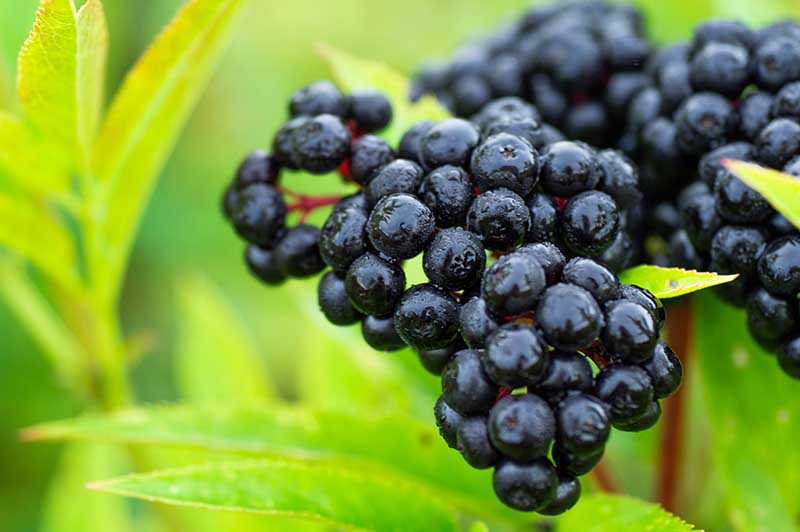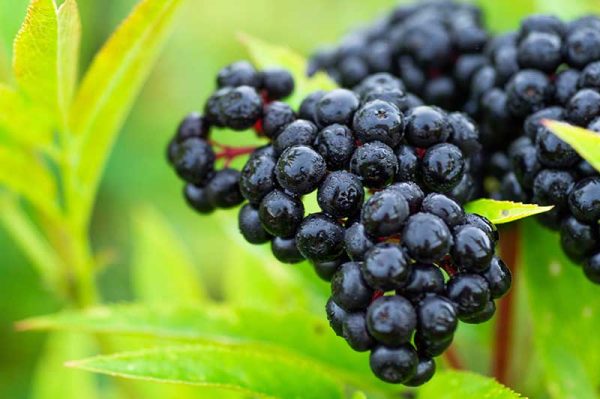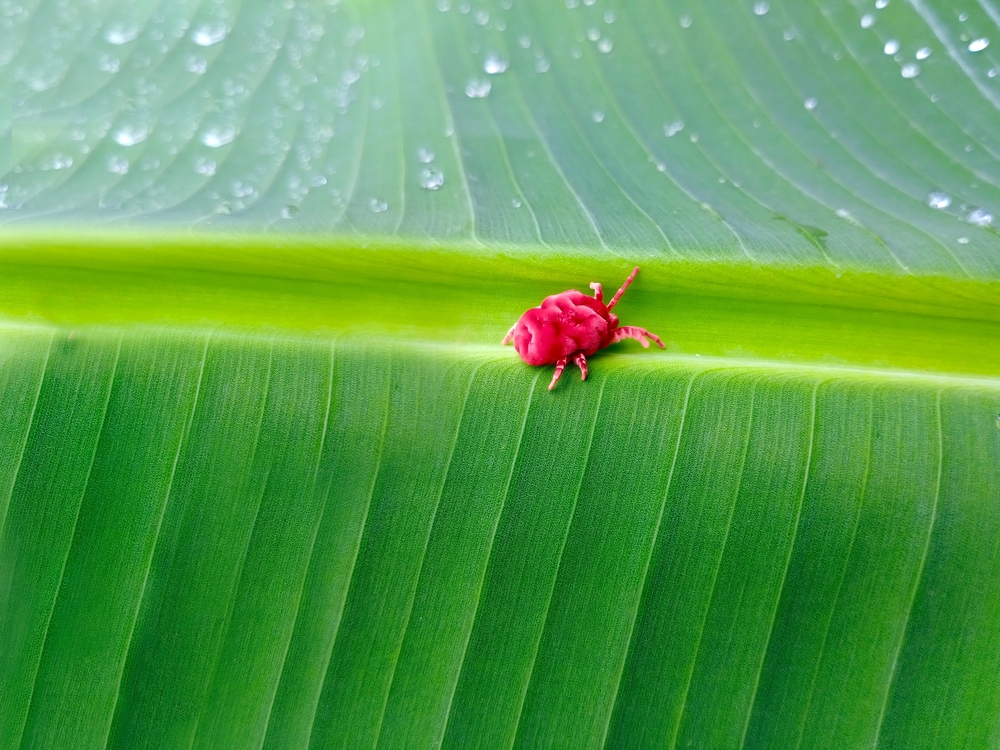Click to Skip Ahead
Can dogs eat berries? Well, there’s no simple answer to this seemingly simple question. There are over 400 different types of known berries, and some are safe for dogs to eat, while others are only safe for human consumption. Some berries are toxic to both dogs and humans.
Fortunately, many berries that are safe for humans to eat are also safe for dogs. However, as with any food, they should be fed to dogs in moderation. The natural sugars found in berries can lead to digestive upset, including vomiting and diarrhea, if consumed in high amounts. It’s also important to consult your veterinarian before feeding your dog any kind of berry if your dog has a chronic health issue, is taking medication, or is eating a special diet.
While we can’t list all the different kinds of berries, we’ve compiled a list of common berries that you’ll come across. Our list will help you determine berries that your dog can eat and how to feed them to your dog safely.
Safe Berries for Dogs
1. Blueberries
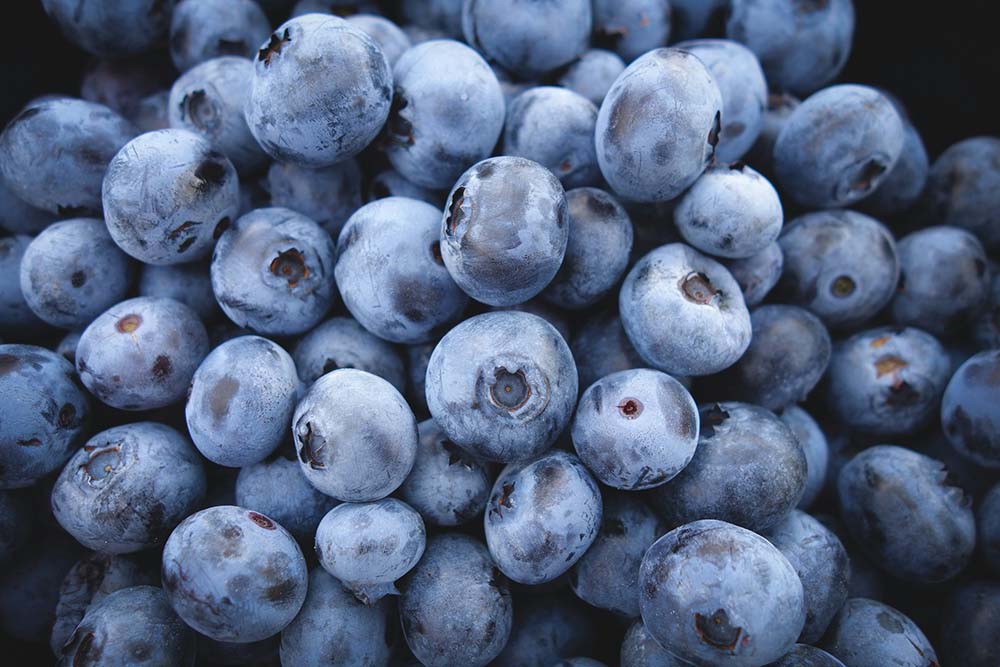
Blueberries are a popular snack amongst dogs. These low-calorie, bite-sized treats are excellent sources of fiber, vitamin C, and antioxidants. You can feed your dog fresh or frozen blueberries. Dried or dehydrated versions typically aren’t recommended due to high concentrations of sugar.
2. Strawberries

Strawberries are another popular berry snack for dogs. Along with being a tasty and sweet treat, strawberries are an excellent source of vitamin C and antioxidants, which are both essential for protecting your dog’s immune system. Their leaves are also edible but can be difficult to digest. However, gobbling a whole strawberry, leaves and all, will likely not create any adverse effects in your pup.
Since strawberries can be a choking hazard, make sure to slice them up into bite-sized pieces before feeding them to your dog.
3. Blackberries

Can dogs eat blackberries, too? Yes! Blackberries are highly nutritious fruits that are rich in antioxidants, vitamin A, vitamin B, vitamin C, and omega-3 fatty acids. Dogs can also safely eat wild blackberries and dewberries.
4. Raspberries

Raspberries are another safe treat for dogs to eat. On top of being a good source of antioxidants and fiber, raspberries also contain essential minerals, including copper, iron, manganese, magnesium, and potassium.
Just keep in mind that raspberries must be fed in low quantities because they contain higher levels of natural xylitol than other berries. Xylitol is a sweetener that’s toxic to dogs. While your dog won’t get xylitol poisoning from eating a couple of raspberries, consuming too much can lead to sickness.
5. Cranberries
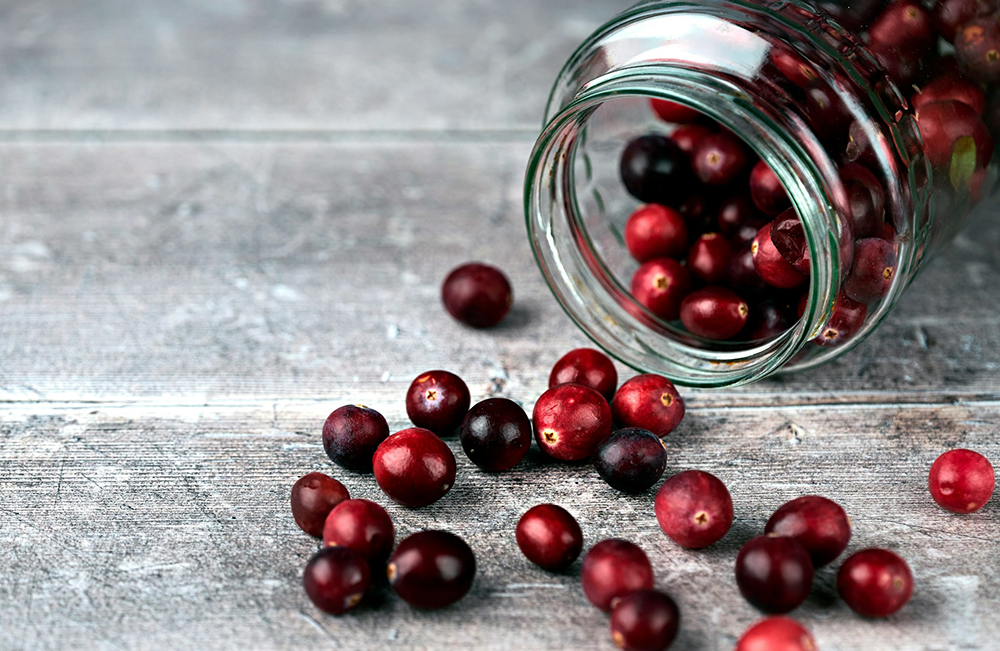
Cranberries usually start appearing in the fall season around Thanksgiving. Fortunately, cranberries are safe for dogs to eat, so your dog can partake in the holiday festivities. However, most dogs don’t really enjoy eating plain cranberries because of their tartness.
Make sure to avoid feeding your dog canned cranberries and cranberry sauces, as they contain added sugars that don’t add any benefits to your dog’s diet. Cranberry juice also isn’t safe for dogs because of the high amounts of sugar.
6. Goji Berries

Goji berries are a popular health food due to their many notable health benefits. Research has linked these berries to protecting eye health, supporting the immune system, and lowering the risk of cancer.
Fortunately, dogs can eat goji berries safely. So, you can feed them a berry or two while you’re making a homemade smoothie bowl topped with goji berries or a trail mix blend containing dried fruit.
Potentially Unsafe Berries for Dogs
7. Golden Berries

Golden berries are a bit more controversial, and some people warn others against feeding them to their dogs. This is mainly because golden berries belong to the nightshade family, which also includes tomatoes, eggplants, and potatoes. These plants contain solanine which is typically associated with being poisonous to dogs.
However, golden berries are safe for dogs to eat when they’re served correctly. Most dogs can safely eat fully ripened golden berries in small quantities, as toxins are found in unripened berries and the stems, leaves, and sheaths of the plants. So, just make sure to completely remove the stem and sheaths from a ripened golden berry before feeding it to your dog.
Unsafe Berries for Dogs
8. Holly Berries

Holly berries usually start to appear in the winter around Christmas time. While the holly plant is beautiful and festive, its berries are toxic to both dogs and humans. They contain saponins, which are naturally occurring toxins found in many kinds of plants.
Most dogs will be deterred from eating holly berries because of their prickly leaves. However, if you have a particularly curious dog, it’s better to play it safe and use fake holly plants as decorations rather than real ones.
9. Juniper Berries

Juniper berries are most commonly used medicinally and are often found in tea blends. Humans can eat small quantities without getting sick, but dogs can’t eat them. Juniper berries contain toxins that will make dogs sick. Fortunately, they have minor toxicity levels, so most dogs will experience an upset stomach and recover completely within a few days.
10. Baneberries

Baneberries grow from flowers in the buttercup family. As their name suggests, baneberries are harmful, and both dogs and humans can get sick from eating them. They contain protoanemonin, glycosides, and essential oils that can cause oral irritation and digestive issues. Consuming large amounts of baneberries can also lead to kidney damage.
Baneberries are widely distributed all throughout North America. So, it’s important to be able to identify them and prevent your dog from getting near them while out on a walk or during a nature hike.
Conclusion
Most berries that are safe for humans to eat are also safe for dogs. Your dog can enjoy eating blueberries, strawberries, blackberries, and raspberries. So, if you’re preparing a treat containing berries, you can reserve a few for your dog to enjoy with you. Just be sure to feed only the plain berry without any added sugar and keep the amounts small.
Many wild berries are toxic to dogs. So, it’s best practice to identify any toxic berries that can be found in areas you plan to walk or hike through with your dog. If your dog does accidentally eat a toxic berry, act quickly by contacting your veterinarian or a pet poison control hotline to get your dog immediate care and attention.
- See also: Can Dogs Eat Rambutan? Is It Safe?
Featured Image Credit: Nastyaofly, Shutterstock

